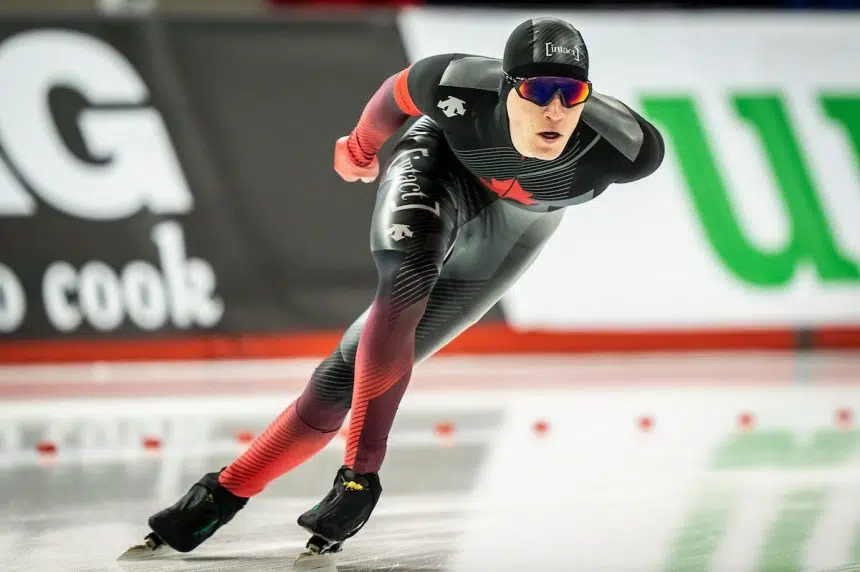Graeme Fish plans to approach his next speed skating meet like any other, even though it isn’t.
The 24-year-old Moose Jaw product is set to compete in the Beijing Winter Olympics.
“It really hasn’t hit me yet that I’m going to the Olympics,” Fish told the Green Zone’s Jamie Nye before leaving for China. “It probably won’t hit me until I’m there and I’m in that environment.
“I’m just taking it the same way as I would take any race: Just focus on what I need to do to perform well and hopefully it works out.”
That said, Fish is thrilled to compete in his first Olympics. He’s slated to compete for Canada in the men’s 10,000 metres, but also could skate in the 5,000m if the Canadian team is awarded another berth in that event.
“Anyone who speed skates always has that dream of one day going to the Olympics and I’m fortunate enough to be able to do that,” he said. “Obviously, it’s super-exciting.
“Last year was kind of a different year. We didn’t really get to compete and I’m glad that, even though I didn’t compete last year, I was fortunate enough to make the Olympics this year.”
Fish made his biggest splash to date on the international speed skating scene in February of 2020, setting a world record while winning gold in the 10,000m at the world single distances championships in Salt Lake City. He also won bronze in the 5,000m.
He finished third in the combined 5,000m/10,000m World Cup standings that season and was named Speed Skating Canada’s long-track male athlete of the year for 2020.
But Fish opted not to compete in the World Cup and world championship bubble in January and February of last year due to concerns about COVID-19. He skated in some races in Red Deer as the year progressed, but couldn’t train at his home base in the Calgary Oval because it was closed.
“The coaches had a really good plan,” Fish said. “Last year, we did a bit more aerobic fitness just to make sure our base was good for this year. Then, when we got on the ice in Red Deer, it was definitely easier to get back into the groove of it.
“It was definitely a little bit different. We did a lot more dryland (training) and weights and stuff and a lot of biking just to keep that fitness there.”
He competed in the Canadian long-track championships in October and in the first two World Cup meets this season, but a positive COVID test after an event in Norway kept him out of the last two World Cup meets before the Olympics.
“I had to sit in a hotel for five days isolated from everyone, so it kind of sucked,” Fish said. “But now I’m feeling really good. I’m skating better than I was before I got COVID.
“Right now, I’m right where I should be. Obviously not racing for a while, it might take a little bit to get back into that rhythm, but right now I’m feeling really good.”
Fish said the technical aspect of his skating is better now than it has ever been, which has given him a boost of confidence heading into the Games.
Asked if being technically sound is the secret to performing well in the 10,000m, Fish said he believes another factor is more important for him.
“Not a lot of people like your legs hurting for as long as you do in the 10k, so first off, you just have to enjoy that,” he said. “I like pain for some reason. It might be a bit weird, but you have to be able to skate through the pain and enjoy it a little bit.”
So Fish will take that “no pain, no gain” attitude to Beijing and attempt to claim gold in his favourite discipline.
“The race is a long race so you’ve got to always stay relaxed at the beginning and then try and build into it at the end,” he said of the 10,000m.
“There’s a lot of really good guys out there this year. It’s definitely one of the more competitive years in the distance than it has been in a long time.”







